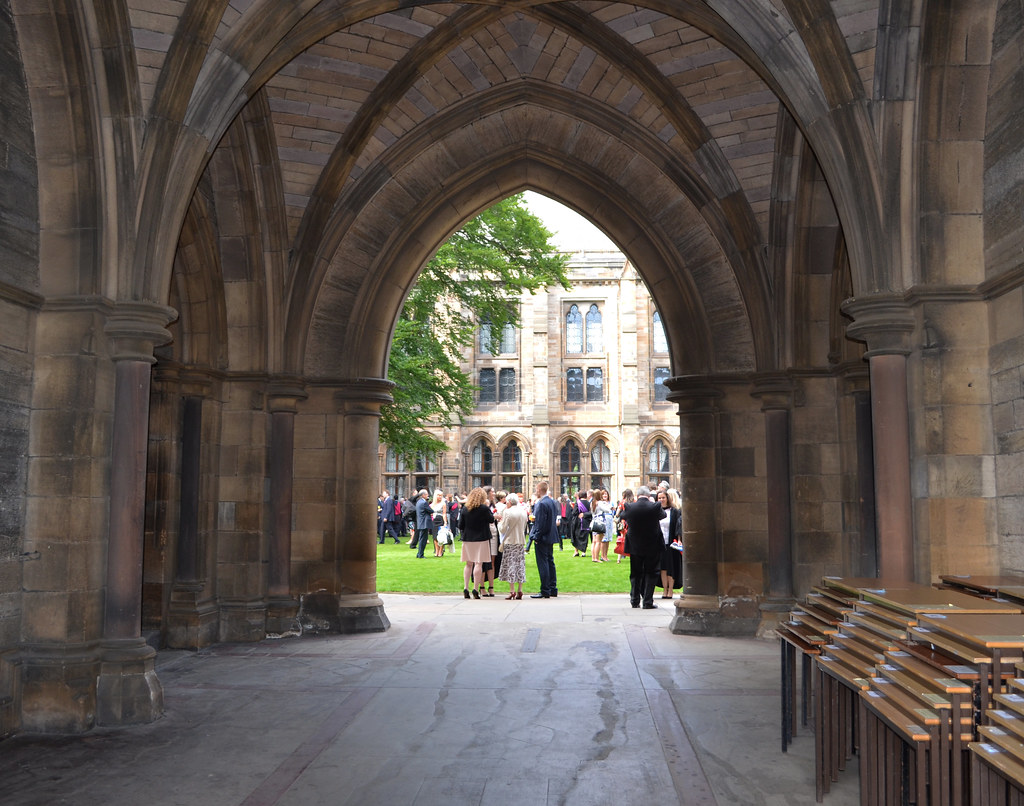When students are preparing to study in the UK, they find a seemingly simple but often questionable phenomenon when choosing a major: obviously, the course content is similar, but why is the degree name written as ‘Bachelor’s Degree’ in some cases and ‘Honours Degree’ in others? This makes many students feel confused, not knowing which one to choose and not sure whether there is an essential difference between the two. In fact, what these two names represent is not just a literal difference but an important tiering mechanism in the UK higher education system. So, what is an Honours Degree? What does an Honours Bachelor’s Degree actually mean? Is it more prestigious than an ordinary bachelor’s degree? Does it have any impact on future postgraduate applications, employment or even immigration? In this blog, we will provide detailed answers to the differences between Bachelor Degree and Honours Degree, helping you to fully understand the difference between the two in terms of definition, academic requirements, programme depth, degree classification, gold content, application scenarios, etc., so that you won’t be confused any more.
What is a Bachelor Degree
In the UK, A Bachelor’s Degree is a type of undergraduate degree, often considered the first degree, awarded by universities and colleges upon successful completion of a course of study, which typically takes 3-4 years. It represents the first level of higher education and serves as the foundation for further academic study or professional development.
Types of Bachelor’s Degrees
Regarding content of study, Bachelor’s degrees can be categorised into Bachelor of Arts, Bachelor of Science, Bachelor of Laws and Bachelor of Engineering. However, in many cases, different schools award different degree titles for degree programmes in the same subject. For example, students majoring in law are usually called Bachelor of Laws or Bachelor of Arts. Here are some of the most famous Bachelor’s degrees students go for.
Bachelor of Arts (BA)
The Bachelor of Arts focuses on developing communication and critical thinking skills, as well as understanding cultural differences. The Bachelor of Arts (BA) refers primarily to the three-year non-honours Bachelor of Arts, Humanities and Social Sciences degree. The social sciences focus on economics, psychology, and history, while the humanities explore philosophy, language, literature, and the arts
Bachelor of Science (BS/BSc)
The Bachelor of Science focuses on developing students’ mathematical, analytical and problem-solving skills. The Bachelor of Science (BSc) degree is awarded primarily to students in the natural sciences, business and management, engineering sciences, mathematics and informatics. In most cases, a bachelor’s degree is the first step before beginning a career in a technical field such as engineering or computer science.
Bachelor of Engineering (BEng)
The Bachelor of Engineering programme has been designed with industrial, modern engineering collaborative working needs in mind. With the freedom to explore engineering topics before choosing your area of interest, you will be able to develop your knowledge and skills in a holistic way. After learning basic skills in the first year, there will be courses in civil engineering, electrical, electronic and systems engineering or mechanical engineering in an engineering department.
Bachelor of Law (LLB)
LLB degree is studied over a period of three to four years. It will help students strengthen their ability to think logically, communicate clearly, and develop their critical approach to the law. The LLB has a wide range of optional courses, including Cyber Law, Counter-Terrorism Law, and Employment Law in Practice. The undergraduate law degree is customised in the final year according to the student’s interests.

What is an Honours Degree
An Honours Degree is a degree that is one level higher than an ordinary Bachelor’s degree and one level lower than a Master’s programme. As a result, the threshold for applying for an Honours Bachelor’s Degree is higher than that for an Ordinary Bachelor’s Degree. Only students who have achieved the top 25% in their undergraduate studies will be admitted. This system is mainly found in Commonwealth countries such as the United Kingdom, Australia and Malaysia. Compared with an ordinary degree, a Bachelor’s Degree with honours requires students to undertake in-depth study in a specific field and to acquire a higher level of subject knowledge and research methodology. The Honours Bachelor’s Degree focuses on the development of professional competence and emphasises innovative thinking, problem-solving and practical skills.
Types of Honours Degrees
Honours degrees are awarded on the basis of a combination of academic coursework and dissertation grades. They are usually divided into First Class Honours, Upper Second Class (2:1), Lower Second Class (2:2), and Third Class.
| Class | % achieved | GPA |
|---|---|---|
| First-Class Honours (1st) | 70% and above | 3.6/4.0 |
| Upper Second-Class Honours (2:1) | 60-70% | 3.0/4.0 |
| Lower Second-Class Honours (2:2) | 50-60% | 2.5/4.0 |
| Third-Class Honours (3rd) | 40-50% | 2.0-2.5/4.0 |
First Class Honours (1:1)
First Class Honours (1:1) is the highest mark that a student can get during their undergraduate degree; it requires an overall mark of greater than 70%, and statistically, around 11% of graduates in the UK graduate with a first-class honours degree. The proportion of students getting first-class honours varies greatly between universities and courses, with fewer law, physics and engineering students getting first-class honours. Students with a first-class honours degree can apply directly for a PhD.
Upper Second-Class Honours (2:1)
The Upper Second-Class Honours, also known as a Second Class First Degree, is second only to the First Class Honours Degree at UK universities, with grades between 60 and 69. The majority of graduates receive their diplomas with an upper second-class grade. Many employers require graduates to achieve at least this grade before employing them.
Lower Second-Class Honours (2:2)
The Lower Second Class Honours degree is also known as a Second Class Second Degree and is awarded to approximately 29% of graduates each year. Although it is also a second-class result, there is a big gap between it and a second-class first-class result in terms of employment employers.
Third-Class Honours (3rd)
Some international students are prone to getting a third-class honours degree because of their weak language skills or not integrating well into the UK educational environment. For those who have obtained a third-class bachelor’s degree, their application for master’s degree programmes will be restricted.

Bachelor’s Degree VS Honours Degree
| Category | Bachelor’s Degree | Honours Degree |
|---|---|---|
| Length of Study | Typically 3 years (full-time) | Typically 3–4 years (includes an Honours year or extended curriculum) |
| Credits | Around 300 UK CATS credits | Around 360 UK CATS credits |
| Course Structure | General coursework, more breadth | More advanced and in-depth study within a focused subject area |
| Exam Difficulty | Moderate, based on standard coursework assessments | Higher difficulty, including critical thinking, application, and research |
| Dissertation | Usually not required | Typically required – includes an independent dissertation or major project |
| Research Component | Minimal | Strong focus on research and analysis, often a key part of final year |
| Academic Recognition | Considered a standard undergraduate qualification | Higher level of academic achievement – often required for postgraduate study |
| Degree Title | Example: BSc or BA | Example: BSc (Hons) or BA (Hons) |
| Postgraduate Pathway | May be accepted for certain Master’s programmes | Widely accepted and often required for postgraduate courses |
| Career Opportunities | Entry-level roles, less emphasis on academic depth | More competitive for jobs requiring critical and analytical skills |
Bachelor of Honours are more academically demanding, including independent research and dissertation work, and are ideal for students planning to pursue postgraduate education or a career in a research-intensive field. Bachelor’s degrees still provide a solid foundation for entering the labour market but may limit your options if you plan to pursue higher education or a professional career.
Benefits of an Honours Degree
First Class Honours are usually considered good evidence for admission to a PhD programme to gain the right to apply directly for a PhD. Or a one-year reduction in the time taken to apply for a Master’s programme (originally two years, one-year reduction).
As an Honours degree usually includes an independent research project or the writing of a dissertation, it is easier for students to settle in and carry out in-depth academic work at the postgraduate level. By completing an independent research project, students can more clearly identify their research interests and directions at the postgraduate level.
This helps to find more appropriate supervisors and projects at the postgraduate level. At the Honours Bachelor’s Degree level, during the research process, students may have the opportunity to develop close relationships with professors or supervisors, which can help to obtain stronger references, and having an Honours Bachelor’s Degree proves that the student is a stand-out presence amongst the crowd of applicants, increasing the likelihood of applying for admission!
In addition, honours degrees are highly valued in Commonwealth countries and regions, especially in government departments and reputable companies, where an honours degree is a knockout punch for a newcomer fresh out of school with no work experience to judge by. Moreover, salaries and job grades are directly linked to degree levels. An honours degree is more often seen as a career plus and is highly rated by employers.
Bachelor Degree and Honours Degree: How to Decide
Suppose you are passionate about a particular subject and plan to pursue a career or postgraduate study in that area. In that case, it is recommended that you choose an Honours Bachelor’s degree. It will improve your critical thinking and analytical skills and enhance your qualifications for further study. A 2:1 Honours Bachelor’s Degree is usually required for applying to the top 100 UK higher education institutions in the world, such as the University of Manchester, the University of Edinburgh, the University of Glasgow, University College London, the London School of Economics and Political Science, and the University of Bristol, to name a few.
On the other hand, a Bachelor’s degree may be more appropriate if you are weak in languages, want a broader education or are still exploring your career path.
Conclusion
Whether you choose a Bachelor’s Degree or an Honours Degree, the most important thing is selecting the path that aligns with your goals, interests, and learning style. Both qualifications offer valuable experiences and can lead to rewarding careers or further study. An Honours Degree might suit those looking for academic depth and research opportunities, while a standard Bachelor’s Degree may be ideal for students seeking flexibility or a quicker entry into the workforce.
FAQs About Bachelor Degree and Honours Degree
What is an honours degree?
The Bachelor’s Degree with Honours, also known as the Merit Degree, is awarded to students who have excelled during their Bachelor’s Degree in recognition of their abilities and is at a higher level than the Ordinary Bachelor’s Degree.
What is a bachelor degree?
A Bachelor’s degree is an undergraduate academic degree that colleges and universities award after a 3-4 year-long program.
Are honours degrees and bachelor degrees the same?
No. An honours degree is a more prestigious and higher-level bachelor’s degree with higher academic intensity and more in-depth research.
Are Honours Degrees vary by country?
Although the term’ honours degree’ is used in different countries, its structure, duration and importance vary. In the United Kingdom, an honours degree is the standard form of an undergraduate degree, which usually takes three years to complete, and in Scotland, it usually takes four years. It includes a greater academic load and is categorised by achievement. In Canada, an honours degree usually represents a more specialised and rigorous degree, requiring a higher GPA, more credits, and often including a research thesis or additional courses. In most cases, yes, a 4-year honours degree is necessary to apply to Canadian universities for a Master’s program.








